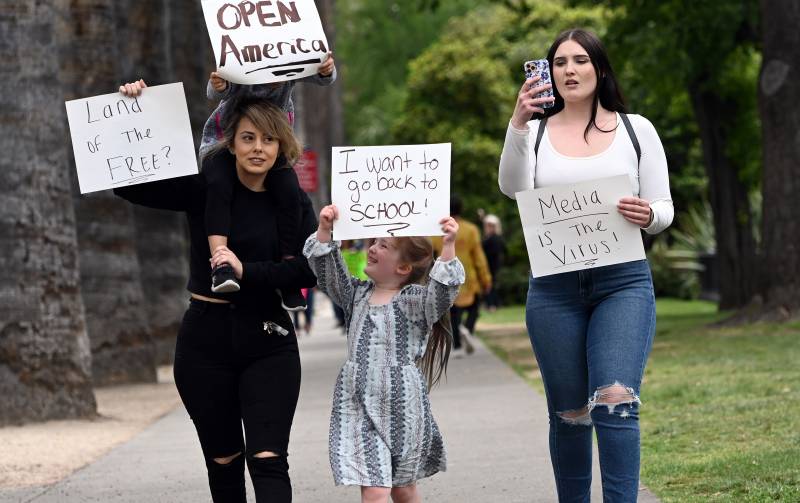Facebook is taking down pages promoting anti-stay-at-home protests, but only in places where large gatherings are against the law, like California.
Social media platforms have been systemically deleting pandemic-related disinformation, and Facebook, like the others, is keen to publicize a variety of efforts designed to boost credible information and suppress false information on its various properties, including Instagram and WhatsApp, during the coronavirus pandemic. But Facebook and Twitter are caught in what has evolved into a politicized battle over public health.
Just a few weeks ago, President Trump asserted he had “total authority” to determine when to lift shelter-in-place rules, only to be publicly smacked down by constitutional law experts. Then the president pivoted and declared he would leave it up to governors to determine when it would be advisable to ramp up economic activity.
Shortly thereafter, right-wing groups and pro-gun activists started organizing protests online, and Trump quickly endorsed them, publishing a tweetstorm designed to put pressure on governors like Gavin Newsom of California, who are following recommendations from public health officials to slow the spread of COVID-19.
